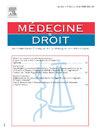La Haute Autorité de santé, un acteur du développement des droits des usagers ?
IF 0.1
Q4 MEDICINE, LEGAL
引用次数: 0
Abstract
The Health High Authority has produced numerous publications on users’ rights, which we will analyse to see whether they contribute to the development of these rights. The first area is respect for fundamental human rights. In the healthcare sector, this mainly concerns dignity, privacy and confidentiality, freedom of movement and the promotion of good treatment: the HAS deals with almost all the fundamental rights recognised to patients, making it possible to check, at least in theory, that these rights are respected during care. In the medico-social and social sector, the fundamental rights of users are satisfactorily taken into account, but the wording is sometimes vague and abstract, which could prevent these rights from being applied in practice. The second priority is to make users real players in their own care. In the healthcare sector, the HAS has drawn up a detailed overview of rights, with patient information, involvement and consent occupying a central place. In the medico-social and social sector, the HAS promotes the empowerment of supported persons, in particular through the involvement of users in the construction of their support project. The HAS appears to be more of a player in disseminating knowledge of rights, and will have to take care to erase the impression of a ‘catalogue’ of rights by referring to values and ethical principles.
卫生高级当局,在发展使用者权利方面发挥作用?
卫生高级管理局出版了许多关于使用者权利的出版物,我们将对这些出版物进行分析,看它们是否有助于这些权利的发展。第一个领域是尊重基本人权。在保健部门,这主要涉及尊严、隐私和保密、行动自由和促进良好治疗:《保健制度》涉及几乎所有公认的病人基本权利,至少在理论上可以检查这些权利在护理期间是否得到尊重。在医疗-社会和社会部门,用户的基本权利得到了令人满意的考虑,但措词有时含糊和抽象,这可能妨碍这些权利在实践中得到应用。第二个优先事项是让用户真正成为自己关心的玩家。在医疗保健部门,卫生管理局起草了一份详细的权利概述,以病人的信息、参与和同意为中心。在医疗-社会和社会部门,保健服务促进被支助者的赋权,特别是通过让使用者参与其支助项目的建设。在传播权利知识方面,民政事务局似乎更像是一个参与者,必须注意通过提及价值观和道德原则来消除对权利“目录”的印象。
本文章由计算机程序翻译,如有差异,请以英文原文为准。
求助全文
约1分钟内获得全文
求助全文
来源期刊

Medecine & Droit
MEDICINE, LEGAL-
CiteScore
0.30
自引率
0.00%
发文量
27
期刊介绍:
The Scientific Committee of the journal Médecine et Droit includes professors of medicine, professors of law, magistrates, lawyers, court medical experts, and specialists in compensation for physical injury. Médecine et Droit provides: • rigorous and clear support for informative and educational matter • a tool for reflection and actualisation of knowledge • an essential link between doctors and lawyers. Médecine et Droit informs: • doctors on different aspects of law and regulations encountered in their profession • lawyers on the specific problems of the medical profession and important bio-ethical issues
 求助内容:
求助内容: 应助结果提醒方式:
应助结果提醒方式:


